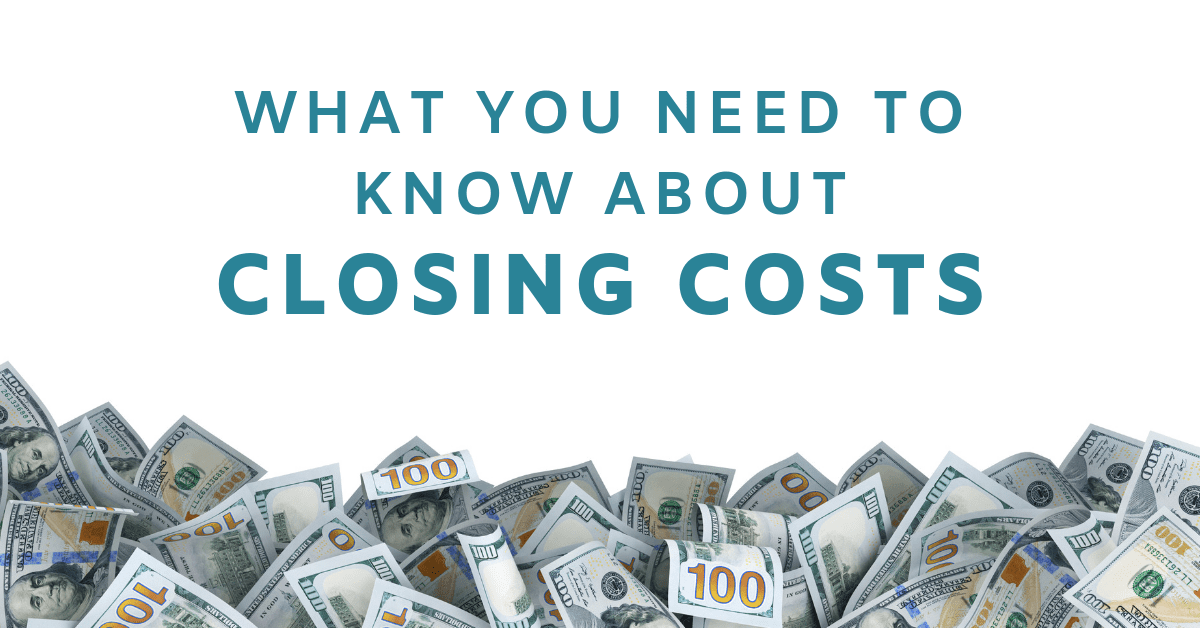
By Kelsey Trumbull
Jul 14, 2019Getting ready to purchase a home is a huge financial undertaking. While you are probably aware of having to save up for a down payment, you might not know about closing cost fees. Don’t be taken by surprise at the closing table; here’s what you need to know about closing costs.
What are closing costs?
Closing costs are the fees charged for services performed during the home purchasing process that you will pay at closing. Closing is the final step of the loan process and is a meeting between you (the buyer), the seller, and closing officer (a lawyer or title/escrow company representative, depending on the state). You will review the legal documents provided in your loan package and execute all required documents. This step is extremely important, as it is the final confirmation of the loan terms as discussed with your lender.
What fees are included in closing costs?
The closing costs you might have to pay will vary based on the property, where you live, and the loan you choose. The following are a few of the most common fees you may see.
-
Application fee: charged by your lender to process your loan application
-
Home Appraisal: paid to the appraisal company for confirming the value of the home
-
Home Inspection: paid to the home inspector who determined the condition of the home; usually required by lenders
-
Origination: charged by the lender for administrative costs, such as preparing documents. Origination fees are usually charged as a percentage of the loan.
-
Underwriting: fee for evaluating and verifying your loan, charged by your lender
-
Credit Report: your credit history and score will be pulled to determine your eligibility for a loan and interest rates.
-
Title Survey: paid to the title company for doing a very thorough research of the property’s records.
Again, closing costs will not be the same for everyone as they vary by region. On average, most homebuyers typically pay about 2 to 5 percent of the home purchase price. For example, if the home costs $250,000, you might pay between $5,000 and $12,500 in closing fees.
Can I avoid closing costs?
It is likely you might be able to avoid some closing cost, but not all. Here a few ways to save on closing costs.
-
Look/Ask for discounts: Your lender might offer a discount or even waive your application fee.
-
No-closing-cost mortgage: This option eliminates closing costs, but not completely. You will be charged a higher interest rate, or the fees will be rolled into the total cost of the mortgage. This is a good option for those who might not have the cash at the time of home purchase but be aware that it will end up costing more in the long run.
-
Shop Around: Your lender will probably have preferred vendors, such as title companies, home inspection, etc. It is not required that you use these vendors, so do some research and shop around to find one who meets your needs.
-
Negotiate: Both you and the seller are responsible for paying certain fees. For example, the seller typically will pay the title transfer and realtor commission. You can try negotiating with the seller to have them assume some of your fees.
Your lender will provide you with an estimate of what closing costs will be at the beginning of your application process, which will allow you the chance to shop around to find the best lender and deal for you. After finding a lender and going through the loan process, you will receive a closing disclosure, or the final closing cost total, at least 3 business days prior to closing. This is your time to make sure everything looks right and if you have questions or find a mistake, you have time to contact your lender. If you’re worried about how much you’ll pay in closing costs, there’s plenty of options for you! NFM participates in most state bond programs that provide closing cost assistance.
To learn more about closing costs or bond programs, contact one of our licensed Mortgage Loan Originators. If you are ready to begin the home buying process, click here to get started!
These blogs are for informational purposes only. Make sure you understand the features associated with the loan program you choose, and that it meets your unique financial needs. Subject to Debt-to-Income and Underwriting requirements. This is not a credit decision or a commitment to lend. Eligibility is subject to completion of an application and verification of home ownership, occupancy, title, income, employment, credit, home value, collateral, and underwriting requirements. Not all programs are available in all areas. Offers may vary and are subject to change at any time without notice. Should you have any questions about the information provided, please contact us.